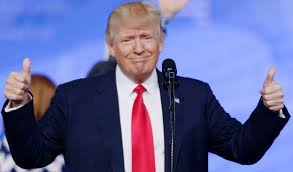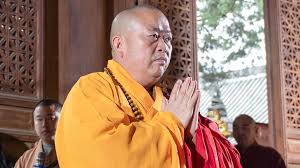Markets-world Asian markets fluctuate after Fed hike

Hong Kong, Sept 27 :Asian markets swung on Thursday as investors considered the prospect of more US interest rate hikes and Donald Trump’s latest broadside in his trade war with China.
The US central bank lifted borrowing costs for the third time this year, as expected, citing an increasingly strong economy and jobs market, with governor Jerome Powell saying he saw no vulnerabilities in the financial system.
The post-meeting statement removed mention of being “accommodative”, which was seen as symbolically important as observers said it indicated the bank is moving away from the days of lower rates. However, Powell said this did not mean the Fed would tighten policy more quickly.
Still, the bank is widely expected to lift rates again in December, while analysts are betting on another three in 2019.
Powell also said there remained risks from trade tensions, which could lift inflation, but added it was too soon to tell what impact it would have.
After the meeting, Wall Street’s three main indexes fell and the dollar edged up on the prospect of higher rates through the year.
In Asia, markets fluctuated but by the end of the morning Tokyo was down 0.1 percent, while Singapore added 0.5 percent and Seoul rose 0.6 percent.
Hong Kong edged up 0.2 percent, Shanghai shed 0.2 percent, Taipei gained 0.3 percent and Sydney was flat.
Trump ramped up his criticism of China on Wednesday, accusing it of trying to sway November’s mid-term elections against his Republican party because of the trade row and admitting his relationship with President Xi Jinping may have been permanently damaged.
His comments will do little to ease concerns about an all-out trade war between the two economic giants, which have exchanged tariffs on hundreds of billions of dollars worth of goods, with no sign of a let-up in hostilities.
On oil markets, both main contracts jumped more than one percent after US energy secretary Rick Perry pushed back against speculation the government could tap its emergency stockpiles in order to lower prices.
Crude is around four-year highs after OPEC and other key producers decided against lifting output, despite being urged to do so by Trump.
Hong Kong dealers are keeping a close eye on commercial interest rates after the Hong Kong Monetary Authority — the de facto central bank — lifted its benchmark rate Thursday in line with the Fed owing to the city’s dollar peg.
But retail borrowing costs have not been raised by lenders since 2006 owing to a huge pile of cash swirling around in Hong Kong’s financial system, which means they have had easy access to cheap money.
However, with much of that cash now having been soaked up by the HKMA to support the weakening local dollar, bets are on a rise in rates.
HKMA chief executive Norman Chan said: “Many market participants are expecting that the prime rate and saving deposit rates may soon be raised.”
The prospect of higher borrowing costs for consumers hit property stocks in Hong Kong, with Sino Land down more than one percent, Country Garden 0.8 percent off and New World Development 0.2 percent lower.





